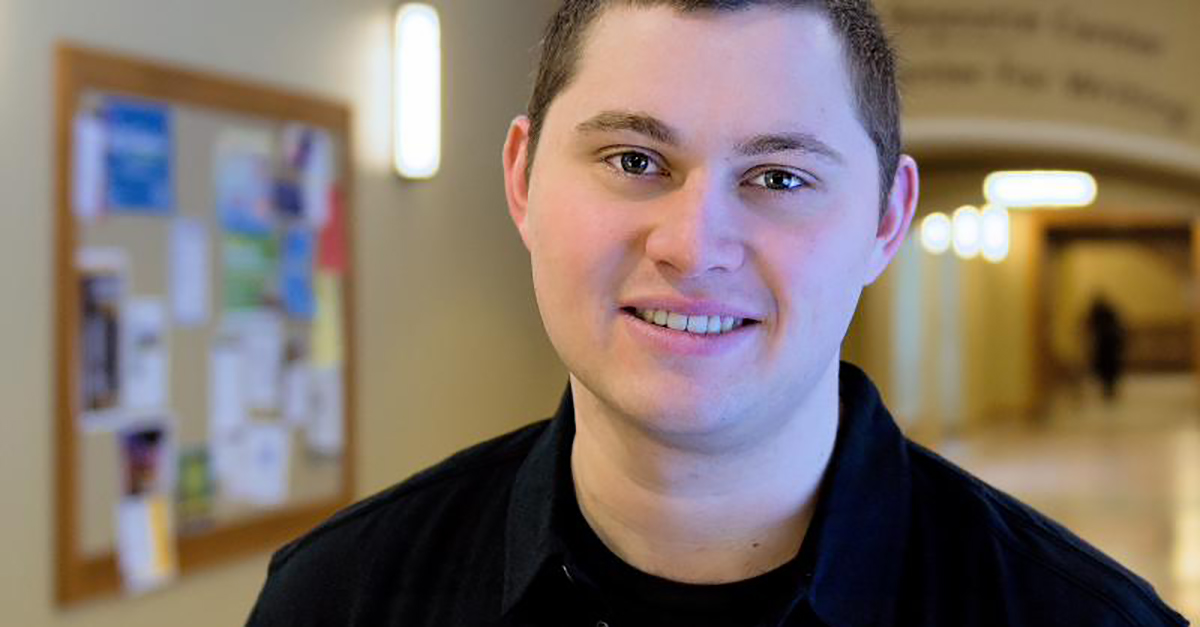Mark Gurman made a name for himself as a news-breaker on all things Apple while still in high school. Among other big stories, he broke the development of the iPad and the arrival of Siri. His tech quest continued at U-M. He uncovered scoop after scoop for the industry site, 9to5mac.com, typing up stories and talking to sources between classes. Called a “teen blogging phenom” by Fortune magazine in 2012, he published the first photos of the iPhone 5 and early details about the Apple Watch. The least surprising news about Mark was that Bloomberg snapped him up upon graduation. Now a full-time consumer tech reporter for the financial software, data, and media company, Mark’s work regularly appears on Bloomberg’s website, in its magazine, and on its TV channel. Here, he shares how he turned his passion into a lucrative profession.
When did your passion for tech start, and how did you cultivate the connections to follow and report on so many unseen developments in Apple?
I’ve been fascinated by technology ever since I saw the first iPod Mini, I think that was in 2004. I really liked how it came in different colors. From that point on, I began to research Apple as a company, finding out who Steve Jobs was and what Apple did. I came upon 9to5Mac and began following their “leaks and rumors” team. I ended up joining that team around the end of 2009, beginning of 2010, when I was in 10th grade.
I came up with a few little stories, little leads early on. I found a domain name that indicated that Apple was working on the iPad, for instance. Over time, I wanted to be a sort of leader on the Apple news team and started developing sources and connections. The rest is history.
How did your time at U-M influence your tech reporting?
I think the workload and lessons in class helped me learn to balance and multitask. The fact that I was doing 9to5Mac while balancing school, and a social life, really helped me post-graduation. It taught me to deal with a lot at the same time.
There was also a lot, a lot, a lot of writing across the board at Michigan. That helped me with my own writing and research skills for my professional career.
Were you involved in any specific groups or programs?
I was in Innovate Blue, an entrepreneurship program, as well as the School of Information. My professional career is at the intersection of entrepreneurship and technology, which is the same as the intersection of my major and minor.
How is writing for Bloomberg different from working for 9to5Mac?
They are two different playing fields. At 9to5Mac, I strictly focused on Apple, across the entire company, every little thing worth reporting. At Bloomberg, I have the opportunity to focus on much larger stories, including Apple, but also across the consumer technology industry. I essentially focus on anything you will buy for yourself or someone else. For example, I had a big story called “How Apple Alienated Mac Loyalists” a few weeks ago. It’s a long, deep dive into what’s going on at Apple, in terms of the Mac computers. I also had an inside story a few months ago about Apple’s work on self-driving cars, and some stories about Google’s Pixel smartphone. I also wrote about the new version of the Amazon Echo speaker with a touch screen coming out early next year.
Bloomberg has also allowed me to deep dive into television, radio, and magazines. I go on TV multiple times a week and I go on the radio whenever I have a significant story. So, the reach is significant.
I still love 9to5Mac and think it is the best website dedicated to Apple. Bloomberg is just my next step.
What about the difference in atmosphere?
9to5Mac is like being in a small startup. I think there are about 20 people there now, maybe a little bit more. It is still growing. Seth Weintraub, the owner, has added sites for electric cars, a Google focus, and product deals and discounts. It is evolving constantly, whereas Bloomberg is an amazing, established organization.
What advice can you give to a young person who may want to cultivate an early passion into a potential career?
Persistence. The only thing that can hold you back from doing something is yourself. No one else has the power to prevent you from doing anything. Never give up. I strongly believe in Wayne Gretzky’s saying that you miss 100 percent of the shots you don’t take. You have to envision what you want to do, visualize it, and figure out a plan to open that door for yourself.
Gregory Lucas-Myers is assistant editor of Michigan Alumnus magazine.





